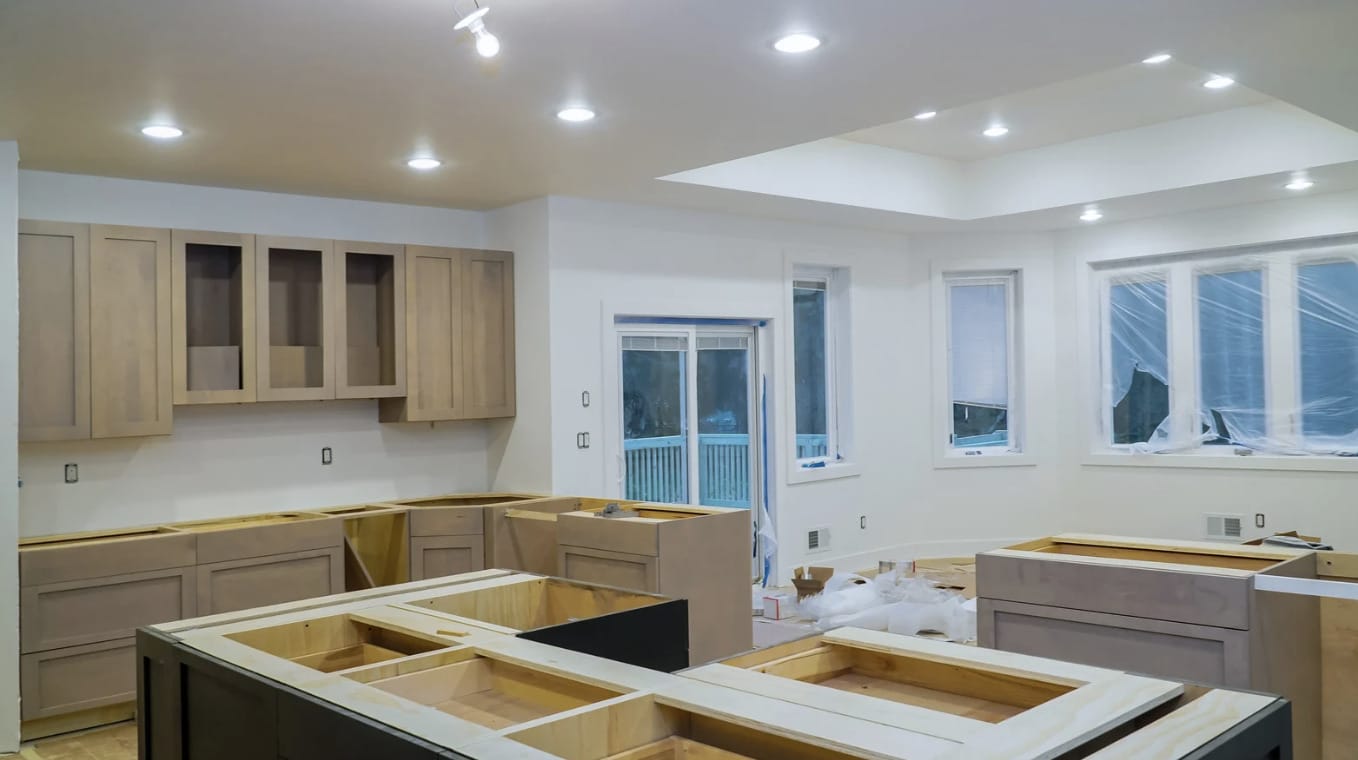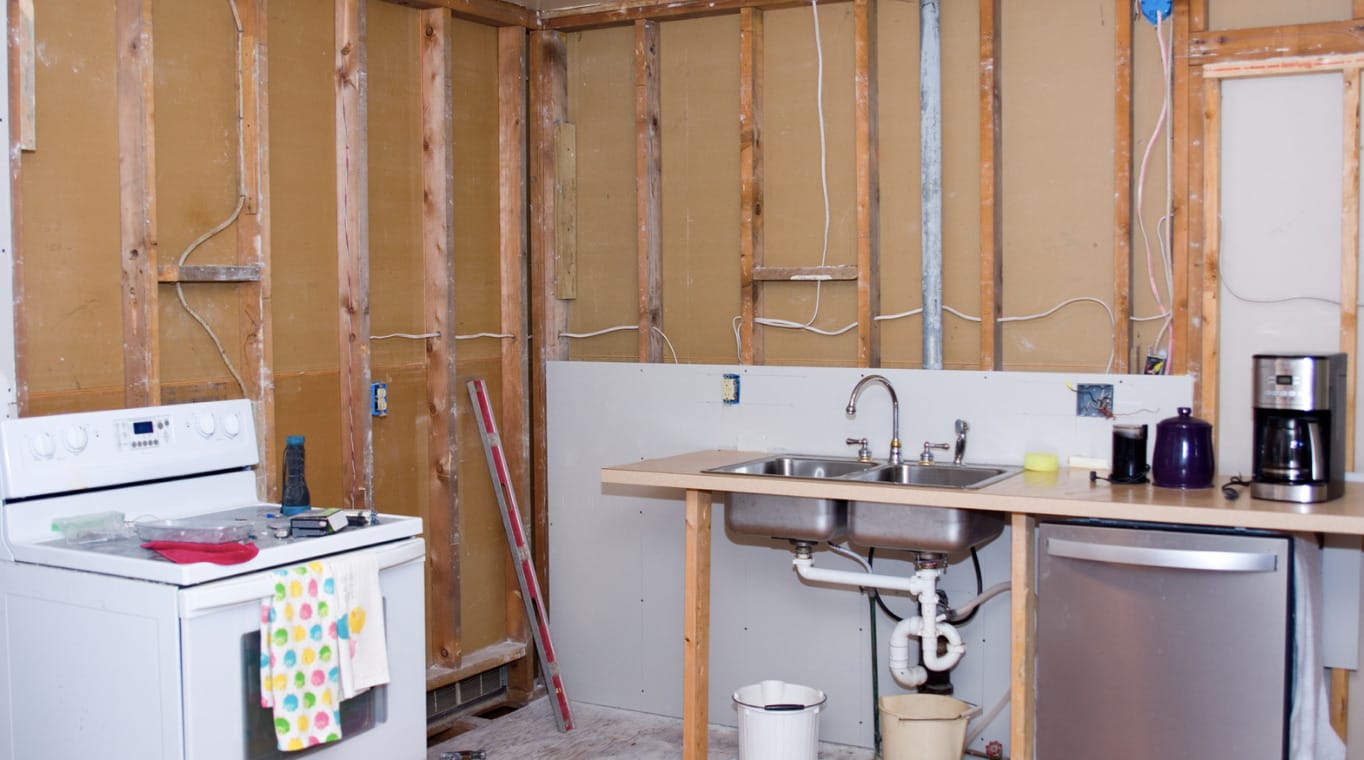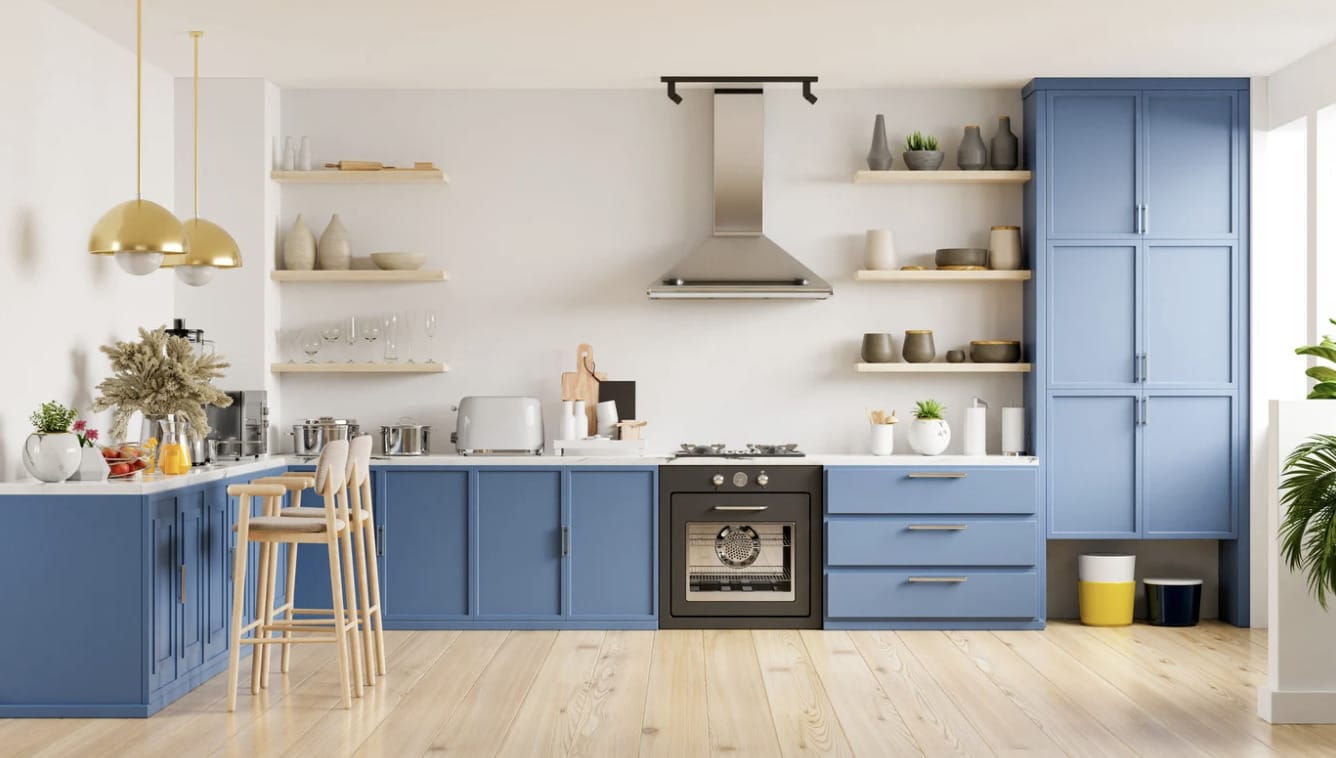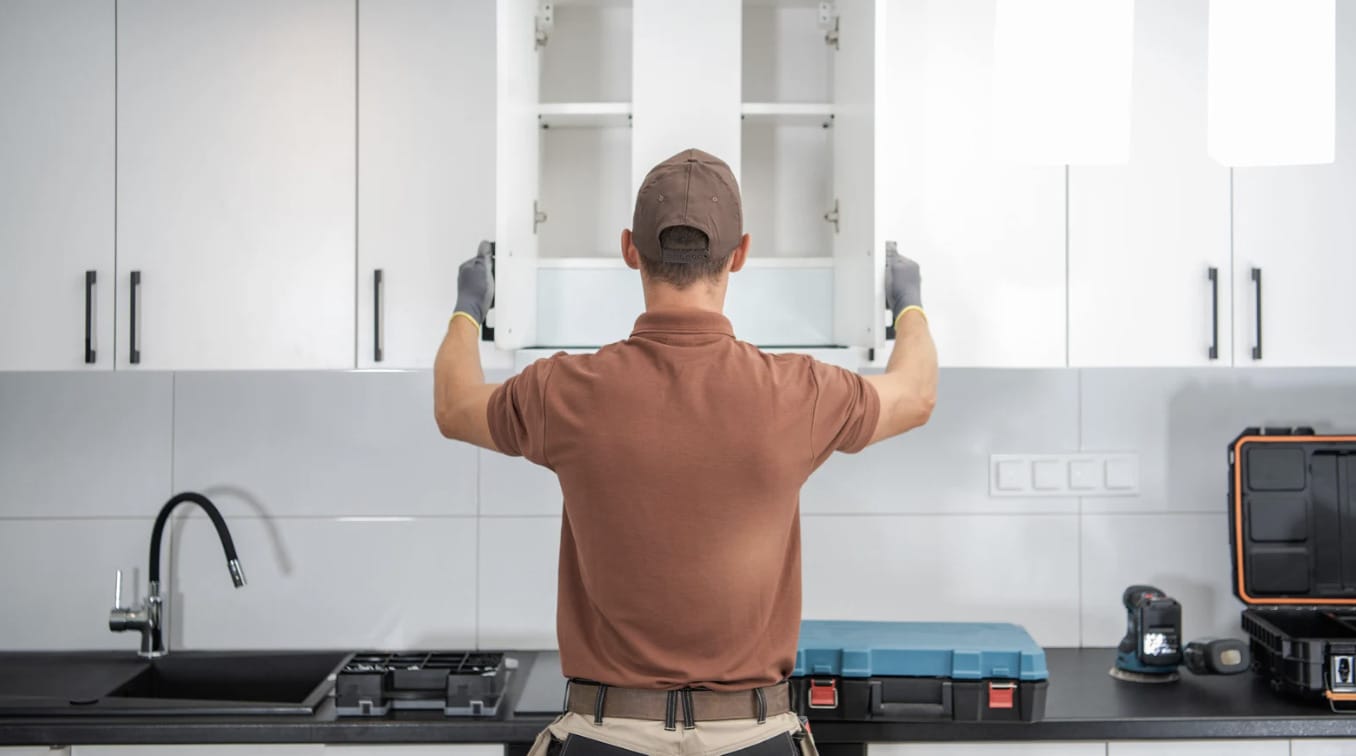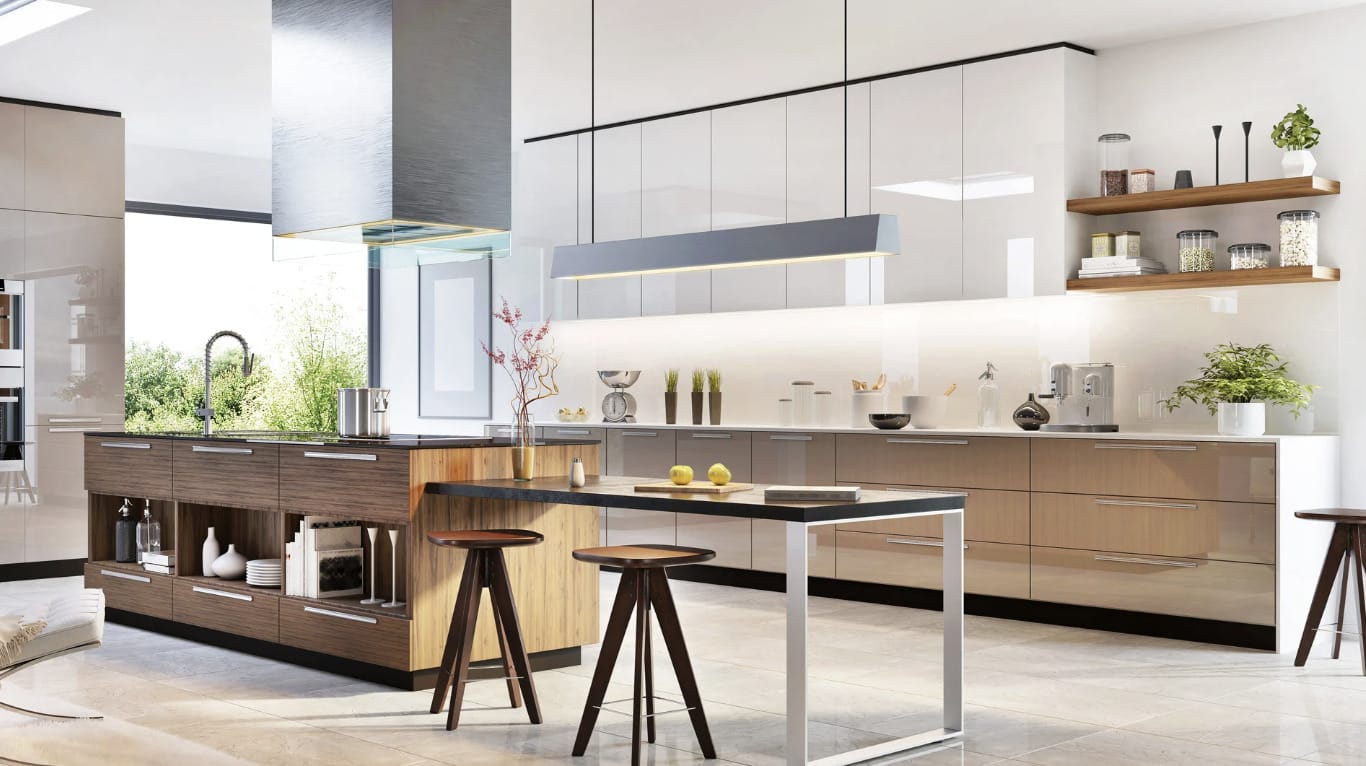Planning a kitchen remodel involves understanding the timeline required for such a project. The duration can vary significantly based on the scope, kitchen size, and specific design and construction tasks.
This guide breaks down the key factors that determine how long a kitchen remodel typically takes, helping you set realistic expectations for your renovation. Whether it’s a minor update or a full-scale renovation, you’ll find essential information to plan your project efficiently.
Quick Summary
- To successfully remodel your kitchen, follow a structured process that includes planning, demolition, construction, and finishing phases.
- Planning your kitchen remodel involves selecting the right layout, style, and materials to ensure functionality and aesthetic appeal.
- The average kitchen remodel takes between 6 to 12 weeks, depending on the extent of changes and the efficiency of project management.
Planning Your Kitchen Remodel
The planning phase is arguably the most crucial step in the kitchen remodeling process. This stage involves deciding on the layout, style, and materials for your new kitchen.
It’s a period where vision meets practicality, and you lay the groundwork for your dream kitchen. The duration of this phase can vary significantly.
It may take up to four weeks or more, depending on how quickly decisions are made and the complexity of the design [1].
Key Considerations in Planning:
- Layout: Optimal kitchen layout focuses on enhancing workflow through the “kitchen triangle” concept, which strategically positions the sink, stove, and refrigerator to minimize walking distance and improve efficiency during cooking tasks. This layout ensures seamless movement and functionality in the kitchen’s design.
- Style: The style of your kitchen should mirror your personal aesthetics and harmonize with your home’s overall architecture. Whether you choose a sleek, modern look, a warm traditional feel, or a blend with transitional style, it should create a cohesive and inviting atmosphere in your home.
- Materials: Material selection impacts both the visual appeal and the practical use of the kitchen. Countertops, cabinetry, and flooring need to be durable to withstand daily use and maintain their look over time. Quality materials enhance functionality, safety, and the longevity of your kitchen’s finish and structure.
Proper planning can prevent costly and time-consuming changes later in the project, so taking the time to thoroughly plan with a professional designer or architect is recommended. Check out our article to learn all the kitchen renovation costs.
Demolition Phase
Once the planning is complete, the next step is demolition, which can take anywhere from one to three weeks. This involves the removal of your old kitchen and making way for the new design
It’s a phase that can be messy and noisy but is essential for the installation of new plumbing, electrical systems, and structures.
Factors Influencing Demolition Duration:
The duration of the demolition phase in a kitchen remodel can be influenced by several key factors. Understanding these can help in planning and executing the project more efficiently.
- The extent of demolition: The scope of demolition, whether a full gutting or partial updates, significantly affects the timeline. Complete gutting involves removing all fixtures, appliances, and often structural elements, requiring more time than simpler updates that might only replace cabinets or refresh surfaces.
- Structural changes: Structural modifications, such as removing walls or adding windows, extend the demolition phase due to the complexity of the work and the necessity of obtaining building permits. These changes ensure compliance with safety standards but require careful planning and possibly dealing with unexpected delays from permit offices.
- Hidden issues: Hidden complications like mold, water damage, or outdated electrical systems uncovered during demolition can prolong the process. Addressing these issues often involves additional specialists, which can extend the timeline and increase the complexity of the project.
Construction Phase
Following demolition, the construction phase begins, where the new kitchen starts to take shape. This stage typically lasts between four to six weeks and involves heavy labor, including rewiring, plumbing, and installation of major components like flooring and cabinetry.
Main Activities:
- Electrical and plumbing: Upgrading electrical and plumbing systems is crucial for compliance with modern building codes and accommodating new appliances and fixtures. This involves replacing outdated wiring and pipes, which is essential for safety and functionality and often requires skilled professionals to ensure everything is up to standard.
- Flooring and cabinetry: Flooring and cabinetry are integral to both the function and aesthetics of a kitchen. Proper installation is vital to ensure that floors can withstand heavy use and cabinets offer optimal storage and durability. Alignment with the kitchen’s overall design ensures a cohesive and attractive appearance.
Installation of Key Elements
This phase includes the installation of cabinets, countertops, and appliances. It can take several days to weeks, especially if custom work is involved. Precision is key here to ensure that everything fits perfectly and functions as intended.
Details to Watch:
- Cabinetry: Perfect alignment of cabinetry is essential for both functionality and visual appeal. Misaligned cabinets can disrupt workflow and diminish the overall aesthetic of the kitchen.
- Countertops: Countertops demand exact measurements and careful installation, especially with materials like granite or marble that are heavy and prone to cracking if not handled properly.
- Appliances: Appliances must be accurately installed and connected to existing electrical and plumbing systems to ensure they operate efficiently and safely within the kitchen layout.
Finishing Touches
The final steps of a kitchen remodel include painting, backsplash installation, and the setup of fixtures and hardware. This can take one to three weeks, depending on the level of detail and preparation required.
Finishing Details:
- Painting: Painting involves necessary preparation, including sanding to smooth surfaces and priming to ensure the paint adheres well, guaranteeing a durable and high-quality finish that enhances the kitchen’s aesthetic appeal.
- Backsplash installation: The duration of backsplash installation varies based on design complexity. Simpler patterns may be completed quickly, while intricate designs require more time for precise alignment and detailing.
- Fixture and hardware installation: Installing fixtures and hardware is crucial for kitchen functionality. This process involves careful placement and securing of components like faucets and cabinet handles, ensuring they operate smoothly and efficiently.
Common Delays and How to Mitigate Them
Several factors can delay a kitchen remodeling project, such as unforeseen structural issues, material delays, and coordination challenges among different tradespeople. Effective communication and proactive planning are crucial for keeping the project on track.
Strategies to Avoid Delays:
- Regular communication: Maintain ongoing communication with your contractor to stay informed about the remodel’s progress and address any arising issues promptly. This helps ensure that any deviations from the plan are managed effectively.
- Proactive material ordering: Order construction materials well in advance to mitigate risks associated with delivery delays. Early ordering can prevent project holdups and is crucial in maintaining a steady workflow throughout the remodeling process.
- Flexible scheduling: Adopt a flexible approach to scheduling, anticipating the need to adjust plans as work progresses. This flexibility is key in accommodating unexpected challenges or delays, thus maintaining project momentum without significant disruptions.
FAQs
What Is the Most Expensive Part of a Kitchen Remodel?
Cabinetry typically represents the most expensive part of a kitchen remodel, consuming up to 30% of total renovation costs due to materials and installation labor.
What Is the Hardest Part of the Kitchen Remodel?
The planning and decision-making stage is often the hardest part of a kitchen remodel, requiring detailed coordination of design, material selection, and logistical considerations.
Are Kitchen Remodels Worth It?
Yes, kitchen remodels are generally worth it, offering a significant return on investment through increased home value and enhanced functionality and aesthetics of the living space.
How Much Does a Luxury Kitchen Cost?
A luxury kitchen remodel can cost anywhere from $50,000 to over $100,000, depending on the quality of materials, appliances, and custom design elements incorporated.
References:

